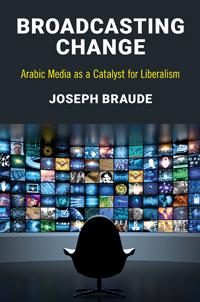Gulf states receive an offer of mediation from France and relay an offer of normalization to Israel. A German outlet signals a parting of the ways with Washington on Iran. To subscribe to this daily roundup by Joseph Braude, click here.
French foreign ministry wades into the intra-GCC dispute: Paris announced the appointment of Bertrand Besancenot, a former ambassador to Saudi Arabia, as special envoy to media the dispute between Qatar on the one hand and Saudi Arabia, the UAE, Bahrain, and Egypt on the other. Reuters notes that France has close ties with Egypt and the United Arab Emirates while also being a major arms supplier to Qatar and a key ally of Saudi Arabia. By comparison with the U.S., the French government has issued few and muted public statements about the crisis.
Gulf states offer Israel an interim arrangement: The Wall Street Journal has reported that several Gulf states are offering to set up phone lines with Israel, permit Israeli businesses to engage in open commerce, and grant flyover rights to Israeli civilian planes. In exchange, Israel would commit to a settlement freeze and relax trade restrictions on Gaza.
Deutche Welle opines US and European interests on Iran are “diverging”: The German government broadcaster published an analysis-plus-opinion piece on its Web site acknowledging two proposed American approaches to alter the nuclear deal — withdrawal and decertification — and rejected both of them. The item, which has an officious ring to it, ends as follows: “Europe has no interest in any further upheaval in the Middle East. Cancellation of the nuclear deal could have the undesired effect of reviving other armament plans, including nuclear arms. It would also fan the flames of violence, and with it, the number of refugees. Without the nuclear deal, Iran would have no reason to restrain itself politically, and could likely embark on an even more aggressive course. And were Iran to resume its nuclear program, this could awaken other regional states’ interest in pursuing nuclear weapons. It would take years to put an end to such an arms race, if indeed that were even possible. And that means that in view of the Iran nuclear deal, American and European interests are clearly diverging.”

Speak Your Mind